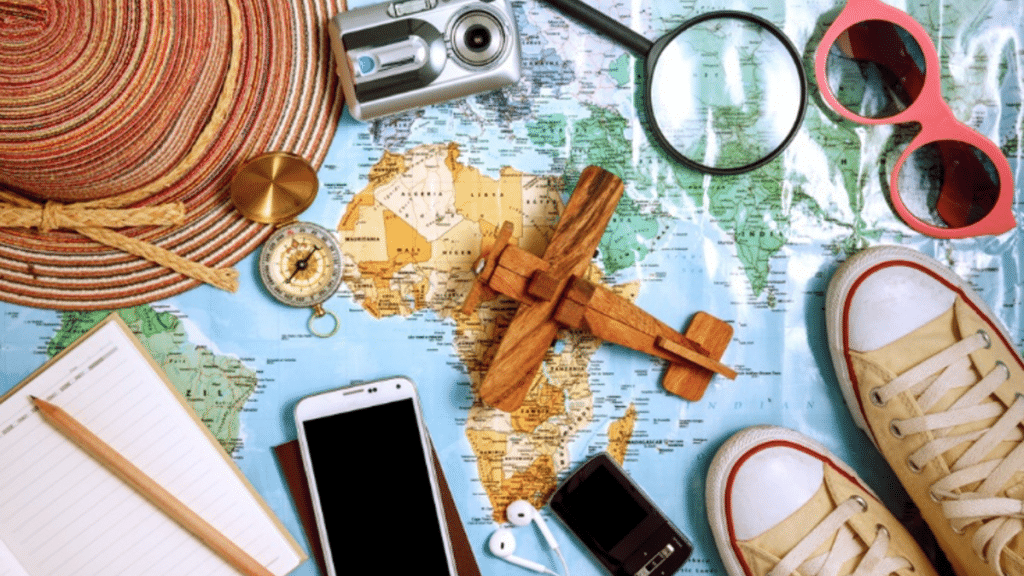Travelling abroad is an exciting experience, but it comes with its share of risks. From navigating unfamiliar surroundings to handling unexpected emergencies, staying safe should be a top priority. Whether you’re a seasoned traveller or setting off for the first time, these essential travel safety tips will help ensure your journey is smooth and stress-free.
1. Get International Travel Insurance Before Your Trip
Securing international travel insurance ensures you are financially protected against medical emergencies, trip cancellations, lost baggage and other unforeseen issues. A comprehensive policy can shield you from unexpected expenses abroad, which are often significantly higher than in India.
Always check what your policy includes and choose a plan that suits your travel needs. For students, student travel insurance offers additional benefits such as tuition fee protection, emergency evacuation, and coverage for study interruptions.
2. Research Your Destination Thoroughly
Before arriving in a new country, research local customs, laws, and safety protocols. Understanding the local environment helps you stay prepared and avoid trouble. Look into:
- Local emergency numbers
- Areas with high crime rates
- Health risks and required vaccinations
- Safety of local transport options
3. Keep Digital and Physical Copies of Important Documents
Losing your passport, visa, or other documents abroad can be extremely stressful. To safeguard yourself:
- Carry photocopies of your passport, visa, and international travel insurance documents.
- Store scanned copies on cloud storage or email.
- Write down emergency contacts in case your phone is lost or stolen.
4. Be Smart with Your Money
Tourists are frequent targets for theft and scams. Protect your finances by:
- Avoiding large amounts of cash; use cards where possible.
- Carrying a money belt or an anti-theft pouch.
- Using ATMs located inside banks or secure locations.
- Keeping a spare card in a separate location.
5. Choose Safe Accommodation
Your choice of accommodation can directly impact your safety. When booking:
- Choose places with 24/7 reception and CCTV surveillance.
- Avoid ground-floor rooms, which are more accessible to intruders.
- Use the hotel safe for storing valuables.
- For homestays or Airbnbs, check verified reviews and security features.
6. Be Cautious with Public Wi-Fi
Public Wi-Fi in hotels, airports, or cafés is convenient but often insecure. Avoid accessing banking apps or entering sensitive details on public networks. Consider using a VPN (Virtual Private Network) for safer browsing while overseas.
7. Trust Your Instincts and Avoid Risky Situations
If something doesn’t feel right, it probably isn’t. Be wary of:
- Walking alone at night in unfamiliar areas
- Overly friendly strangers
- Accepting food or drinks from people you don’t know
If you feel unsafe, move to a crowded area or contact local authorities.
8. Learn Basic Local Phrases
Knowing a few essential phrases in the local language—such as “Help!”, “Where is the hospital?” or “I need the police”—can be incredibly helpful in emergencies.
9. Register with Your Embassy
Many countries, including India, allow travellers to register with their embassy or consulate. This helps the government reach you in case of natural disasters, political unrest or emergencies. Visit the official Ministry of External Affairs (MEA) portal or the embassy website to register.
10. Plan Your Transportation Wisely
Transport safety varies widely by country. To stay safe:
- Use authorised taxis or reliable ride-sharing apps.
- Be alert on public transport, especially in crowded areas.
- Avoid driving in countries with poor road safety unless absolutely necessary.
11. Keep Emergency Contacts Handy
Store important contact numbers such as:
- Local emergency services (police, ambulance, fire)
- The nearest Indian embassy or consulate
- Your student travel insurance or travel insurer’s 24/7 helpline
12. Maintain Good Health Practices
Getting sick abroad can quickly derail your plans. Stay healthy by:
- Drinking bottled or filtered water
- Carrying essential medicines
- Eating fresh, hygienic food
- Following COVID-19 and local health guidelines
Conclusion
Travelling internationally is enriching and eye-opening, but safety should never be compromised. By following these practical travel safety tips, you can enjoy a worry-free journey. And don’t forget—international travel insurance is an absolute must, especially for students heading overseas. With student travel insurance, you get added protection tailored to academic and lifestyle needs while studying abroad.
